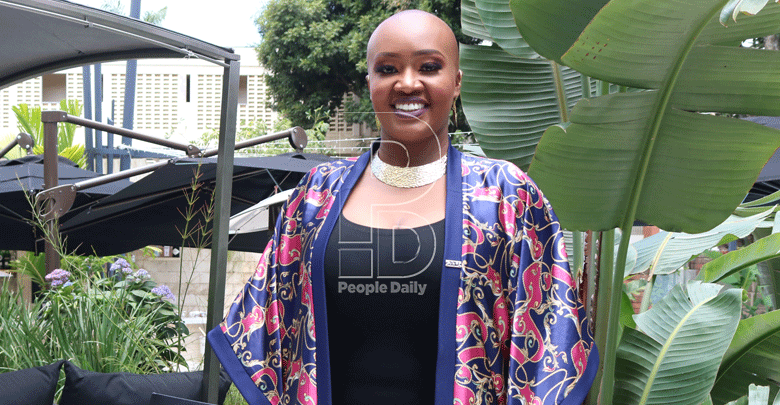Towards a stress-free childbirth

Sandra Wekesa @wekesa _sandra
When many women think about the process of giving birth, what comes to mind is pain and how to avoid it.
That is why, many would go to any level to ease this pain. From attending pre-childbirth classes, finding soothing environment, choosing an excellent delivery team, having a massage, to an epidural (a form of local anaesthesia that relieves most of the pain from the belly button to the entire body down below, given during labour and delivery).
Recently, hypnobirthing has become another viable option. Christine Wawira, childbirth hypnobirthing instructor based in the United States, describes hypnobirthing as a birthing method that uses self-hypnosis and relaxation techniques to help a woman feel physically, mentally and spiritually prepared and reduce her awareness of fear, anxiety and pain during childbirth.
Created by Marie “Mickey” Mongan, a highly awarded hypnotherapist and Harvard University Ford Foundation fellow, this gentle view of childbirth takes the stance that both mum’s and baby’s bodies were made to do this, and they work together in harmony.
A luxurious birth?
Through practiced deep breathing, visualisation, prompts from their partners, and labour comfort measures, mothers can train their brain to elicit a deep relaxation response on demand.
Instead of feeling pain, hypnobirthing mothers often describe the experience as feeling pressure and use the word “surges” or “waves” instead of contractions.
Worldwide, celebrities such as Jessica Alba and Kate Middleton have supposedly used hypnosis to prepare for labour and delivery. Although this might sound modernist, there are a few couples that have learnt to embrace this form of birth.
In Kenya, there are quite a number of couples that have embraced hypnobirthing.
For example, celebrity couple and Youtubers Shiko Nguru and Rama Oluoch of the Green Calabash YouTube channel shared their birthing experience on YouTube and people marvelled at how easy it seemed.
“I was visualising my body opening up, I was visualising my baby in my arms and everything going well, per the affirmations I was listening to,” she said.
That energy seemed to sync with Rama as she sat in the pool of water and her new baby boy made his world debut late last year. As it turns out, the couple had a midwife, but she was stuck in traffic.
“I feel like there’s a lot of horror stories or negative stories that are surrounding childbirth, so what I hope to do is give other women another side of childbirth. A positive side, especially here locally,” she said.
Wawira agrees: “I wish people didn’t have to go through first traumatic birth to discover that they need to educate and empower themselves and learn that there are other ways to birth that brings healing.”
Maryann Akeyo, who is 28 weeks pregnant, says that she would love to give it a try if it is ever an affordable option.
“Delivering is always a gamble in Kenya —stories on social media have painted a different picture and this is what I am afraid of.
I always think of how the nurses will treat me, if at all they will be patient with me during the process and if my baby will be safe,” she notes.
To her, these are some of the reason she wishes she had an option and assurance to a safer delivery.
Does it feel like a safer option?
“This is why I want to vouch for hypnobirthing in Kenya and other parts of the world where maternal and infant mortality rate is high in order to save lives during childbirth,” says Wawira.
Hypnobirthing involves successful six week, three-hours per week, complete childbirth education course.In Kenya, most of the classes are done virtually through a website called hypnobabies.com.
The cost varies from Sh55,000 (US$500) depending on the group setting, which most of the time is a group of six.
“Mothers can give birth on their own, I mean if animals can just go to a corner, and give birth by themselves so can human beings.
The problem is we have been programmed to think that in order for you to give birth, you need to be induced and go through so many tortures in the hospital. That is totally wrong,” she says.
As a certified hypnobirthing instructor, Wawira strongly believes that the only time women should think of having a caesarean section is in cases where one has developed pregnancy complications, which are usually detected early during antenatal clinic visits.
“Personally, I took this class when I was pregnant with my son and had the most comfortable, peaceful, pain free, drug free, empowering experience during his birth.
Other than that, I recently delivered a baby for my clients in the comfort of their living room and it was an amazing experience for both of us,” Wawira says in ending.








